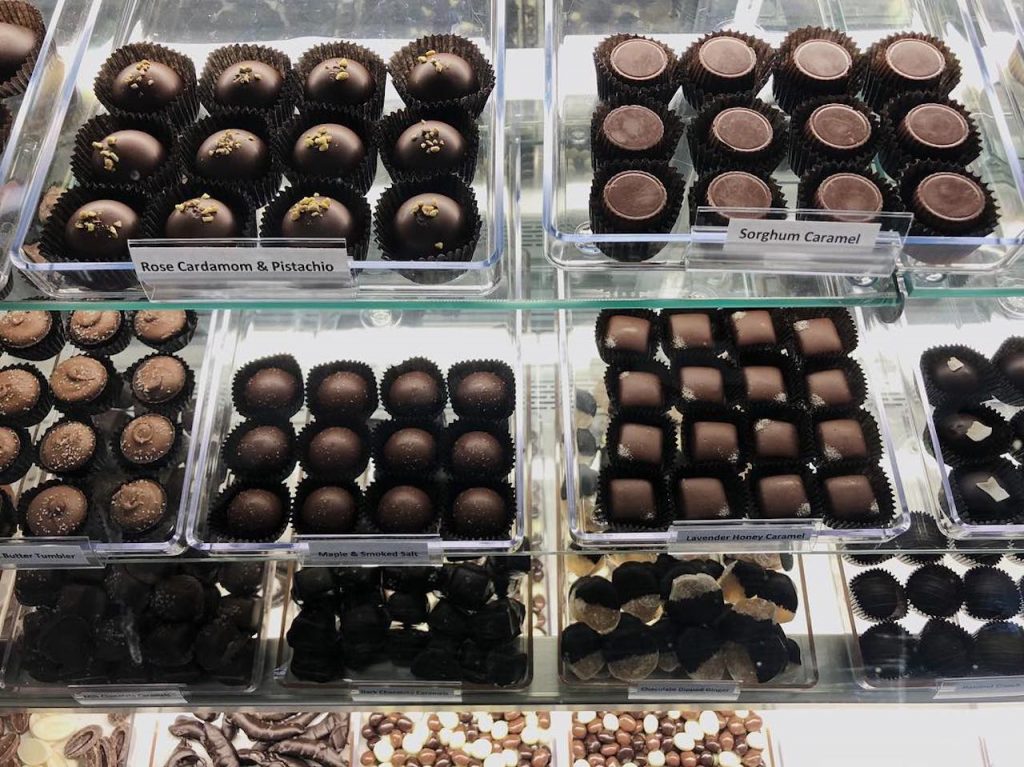Liberty Alumnus supports survivors of human trafficking through Richmond chocolate business

In 2017, Liberty alumnus Steve Taylor decided to take a giant leap of faith to retire from the company he had worked in for over 20 years and dedicate his money, time and energy toward a dream of stopping human trafficking.
But the burden for human trafficking in Taylor and his wife Kim’s hearts began long before that. Their passion for fighting human trafficking sparked when a couple from the International Justice Mission came to their church in 2012, sharing how they were going to East Asia to help fight against it.
Both he and his wife started financially supporting these missionaries, and as they received their monthly newsletter, they became more and more surprised by what they learned. Steve soon learned that human slavery was more prominent today than at any previous point in history. He discovered Richmond, Virginia, where he lived, was considered the capital of human trafficking on the East Coast.
“We wanted to find a way to help with that problem in the Richmond area,” Steve said. “One of the biggest needs we saw was for job training.”
Job training is essential in helping prevent human trafficking, Steve said. Around 80% of those rescued out of human trafficking will often return to it because they have no means to find other jobs and cannot provide for themselves.
With this in mind, Steve and his wife decided to open Taylor Made Chocolate, an artisanal chocolate factory that would allow them to help farmers from out of country while at the same time using their business to provide training for those being rescued.
During the same period of time when Steve felt God calling him to fight for this cause, he was also pursuing his graduate degree at Liberty University in executive leadership. During an entrepreneurship course, he had the opportunity to develop a hypothetical business plan, a plan that led to the creation of Taylor Made Chocolate.
Steve said this class came at the perfect time, serving as the platform that would catapult him into opening his business.
“We weren’t just writing something to write or to get a grade,” Steve said. “We were writing something that would help us accomplish what God had put in our hearts at the time.”
Chocolate was an emerging food trend that also allowed the Taylors to tap into the ministry against human trafficking. As Steve discussed, 80% of cocoa beans around the world are produced using slave labor, which meant that by making their own chocolate at Taylor Made, they could help stop human enslavement internationally – not just in Richmond.

SWEET — Taylor Made offers a variety of chocolate items such as bark and truffles, with vegan and allergy-free options also available.
After they researched and considered the best place to buy their beans from, God placed the country of Haiti on their hearts, Steve said.
Taylor discovered that in countries like Haiti, farmers are usually paid very poorly by mass producers of products such as chocolate, sometimes forcing parents to give their children up to human trafficking due to lack of income. Through his production of chocolate as an artisanal chocolate maker, he realized he could raise the per capita income of farming communities by almost three-fold. In other words, this represented more income for Haitian farmers, which in turn represented more money to sustain their families.
“By us going into a community, we are able to pay more wages for the products,” Taylor said. “Then we are able to give the family a sustainable income and the families can stay together.”
Taylor Made Chocolate also provides job training for human trafficking survivors. At Taylor Made, survivors are trained in food preparation and manufacturing. This training allows them to be certified in these areas and increases their chances of finding well-paying jobs in the U.S.
Steve shared how he still recalls the first survivor they trained.
“We thought our first human trafficking survivor would be someone rescued from a sex ring,” Steve said. “But it was actually a woman enslaved in a household in central Virginia.”
This lady, who had been brought to the U.S. from Africa to do house chores and duties, would often get beaten by the household owners. They would constantly threaten to harm her son who was still in Africa if she ever spoke of her situation.
After one beating, she was heavily injured and was taken to the hospital, and thanks to the first responders was able to seek help and escape slavery. She ended up receiving her training with Taylor Made Chocolate.
“She gave us a call a couple of months ago,” Steve said. “She told us she was getting reunited with her son and was planning on using the training she received here (at Taylor Made) to get a job in the U.S.”
The Taylors now partner with a safe house in Richmond that helps survivors escape the trafficking cycle. For more information or to buy your own box of chocolate, visit TMChocolate.com or visit their Facebook page.
Elias is a feature reporter. Follow her on Twitter.
